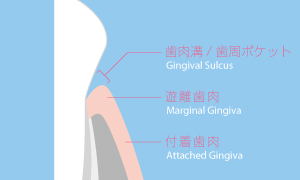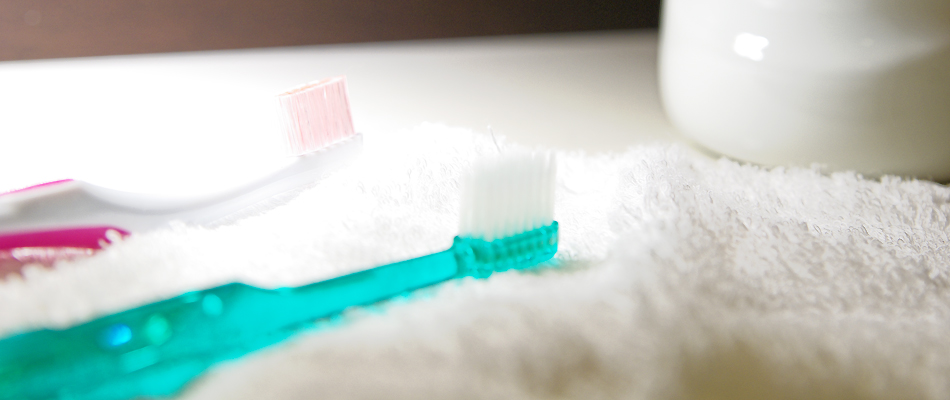Cause of Periodontitis
Periodontitis is caused by various factors. Stress, hormone balance, the side effects of drugs and systemic diseases such as diabetes or high blood pressure could be a factor in periodontitis. However, the leading cause is the accumulation of dental plaque in the oral cavity.
Various bacteria live in our mouth. Among the bacteria, especially streptococcus mutans of the significant contributor to dental caries provide Glycocalyx by using the glucide remaining in our mouth. Glycocalyx has viscosity and enable the various bacteria to stick to each other. This colonizing bacteria are called biofilm. Biofilm barriered against predators such as antibiotics is resistant to a sterilization.
Bacteria increasing in the biofilm plaque release enzymes and toxins and the periodontal tissues are destroyed. On the other hand, immune response against the toxins is activated. Macrophages, a type of white blood cells, secrete signaling proteins called cytokines and singaling molecule (chemical mediator). As a result, along with the inflammatory response and the emergence of osteoclasts, alveolar bone are destroyed.
As the causative agent of periodontal disease, there are various bacteria in the oral cavity. Among them, the following bacteria are particularly virulent.
Aggregatibacter actinomycetemcomitans
- They produce a toxin of Leukotoxin and destroy white blood cells.
Porphyromonas gingivalis
- They produce a toxin of Lipopolysaccharide (LPS) and cause inflammation or bone destruction.
Prevotella intermedia
- They produce a toxin of Lipopolysaccharide (LPS) and cause inflammation or bone destruction.
Treponema denticola
- They produce proteoiytic enzyme and immunosuppressive agent.
According to a 2005 survey by the Ministry of Health, 15% of 20s, 24% of 30s, 36% of 40s, 45% of 50s and 50% of 60s have periodontal pocket of 4 mm or more.
Various bacteria live in our mouth. Among the bacteria, especially streptococcus mutans of the significant contributor to dental caries provide Glycocalyx by using the glucide remaining in our mouth. Glycocalyx has viscosity and enable the various bacteria to stick to each other. This colonizing bacteria are called biofilm. Biofilm barriered against predators such as antibiotics is resistant to a sterilization.
Bacteria increasing in the biofilm plaque release enzymes and toxins and the periodontal tissues are destroyed. On the other hand, immune response against the toxins is activated. Macrophages, a type of white blood cells, secrete signaling proteins called cytokines and singaling molecule (chemical mediator). As a result, along with the inflammatory response and the emergence of osteoclasts, alveolar bone are destroyed.
As the causative agent of periodontal disease, there are various bacteria in the oral cavity. Among them, the following bacteria are particularly virulent.
Aggregatibacter actinomycetemcomitans
- They produce a toxin of Leukotoxin and destroy white blood cells.
Porphyromonas gingivalis
- They produce a toxin of Lipopolysaccharide (LPS) and cause inflammation or bone destruction.
Prevotella intermedia
- They produce a toxin of Lipopolysaccharide (LPS) and cause inflammation or bone destruction.
Treponema denticola
- They produce proteoiytic enzyme and immunosuppressive agent.
According to a 2005 survey by the Ministry of Health, 15% of 20s, 24% of 30s, 36% of 40s, 45% of 50s and 50% of 60s have periodontal pocket of 4 mm or more.

- Dental Caries and Cleaning
- Teeth
- Dental Caries
- Causes
- Prevention
- Periodontitis and Cleaning
- Periodontium
- Periodontitis
- Causes
- Prevention
- Methods of Tooth Cleaning
- Brushing and Flossing
- Cleaning Timing
- Preparation
- Brushing Methods
- 4 Techniques
- Flossing Methods







